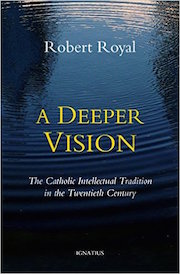In an interview with the Jesuit magazine America (September, 2013), Pope Francis described the Church as a “field hospital after battle,” in which the immediate necessity is to “start from the ground up” and “heal the wounds.” Then, “we can talk about everything else.”
Certainly, a major “battle ground” for the Church has been the family. But can the pope’s opinion in a recent address to the pastoral congress of the Diocese of Rome that “the great majority of marriages today are not valid” be true? (Note: the Vatican later altered the transcript to say a large number or portion rather than “the great majority.”) Perhaps yes, but not for the reasons he stated.
A valid, sacramental, consummated marriage can never be dissolved. Is it possible that declarations of nullity could be made, after application to diocesan tribunals, for about half of the marriages taking place in Church in our day?
There are various situations that could be cause for annulment, but are presumably rather rare (many of these are even considered grounds for annulments by civil authorities): Consanguinity, e.g., between an uncle/niece, aunt/nephew, stepfather/stepdaughter or first cousins; “shotgun” marriages; under-age marriages (a girl under 14 or boy under 16, according to Church law); convenience marriages to gain citizenship; a solemn vow of celibacy; relationships to in-laws; relationships from adoption; special-case impotence (with a chosen spouse, because of disparities in size between their sexual organs); mistaken identity (e.g. the wrong mail-order bride shows up). Or someone might marry under the influence of drugs, like LSD. Or the marriage was not consummated.
Such cases are hard to imagine as constituting a significant portion of “annulable” marriages. But more frequent and serious situations are considered in Monsignor Michael Smith Foster’s book, Annulment: The Wedding That Was : How the Church Can Declare a Marriage Null. Monsignor Foster, the chief canon lawyer for the Boston archdiocese, does not like the term “annulment,” which sounds like erasing something that was there; he prefers “declaration of nullity,” which indicates there was not a sacramental marriage in the first place.
He emphasizes that a sacramental marriage is not just a contract but a covenant, and is not just a “symbol” of the union of Christ with the Church, but is one with that union, bringing about an implementation of that mystical union in the man and woman who marry.
As a voluntary act in which consent is of the utmost importance, certain prerequisites are obviously necessary – no prior valid marriage, and no deceit as to the identity and qualities of the person you are marrying. Qualities of a serious nature that would be impediments to a valid marriage would include a number of non-disclosures considered unacceptable by a prospective spouse: a serious medical condition, pregnancy by someone else, an abortion, a criminal record, serious secret disagreements about the faith, and provable psychological diseases or personality disorders.

Foster cites St. Augustine regarding the positive characteristics of a sacramental marriage (children, fidelity, and perpetuity); and many of the situations and cases he discusses relate to these three categories.
Children: a couple not open to having children, or that has decided never to have children, is ipso facto a cause of marriage invalidity for Catholics. If a couple uses contraceptives to indefinitely delay procreation, or to delay until some idealized state of economic self-sufficiency is attained, the results could be similar. Not only are they not receiving the graces connected with the sacrament of matrimony, because they are living in sin, but the (intended) extended sterility could amount to an invalidation. Incurable impotence or homosexuality at the time of marriage, preventing sexual intercourse, may also be causes for a declaration of nullity.
Fidelity: If a man or a woman has been having an affair, and is unable to intend to break up that relationship, or is unable to agree to a strictly monogamous relationship at the time of marriage, this would constitute an invalidating impediment to the fidelity intrinsic to sacramental marriage.
Perpetuity: Many consider marriage to be a contract based on mutual satisfaction, not an indissoluble covenant lasting until the death of one of the parties. Someone with this understanding of marriage may go though with a wedding, but is incapable of entering a sacramental marriage. Also, if conditions are attached to consent – e.g., good health, a certain degree of wealth, social or political status (pre-nups fall in this category, too) – commitment to perpetuity is lacking.
The sharp rise in annulments granted by diocesan tribunals in America and elsewhere since the 1960s is to some extent, but not completely, explained by changes in canonical procedures. Pope Francis, in his stated doubts about the validity of sacramental marriages, attributed this phenomenon to “a culture of the provisional,” in which modern couples have defective ideas about “permanence” – thus militating against the “perpetuity” that St. Augustine noted as essential to Christian marriage.
This “explanation” has drawn criticism, including the observation of canonist Dr. Edward Peters:
Ignorance and/or error about something like “permanence” does not nullify marriage unless it sufficiently damages an individual’s will to enter marriage. That claim, folks, while possible to prove in specific cases, requires a demanding inquiry by persons who know and respect marriage doctrine and law.
Still, the pope may be right for the wrong reasons. Of St. Augustine’s three characteristics, isn’t the most glaring change with regard to children? According to statistics compiled by the Guttmacher Institute, 68 percent of Catholics use various methods of contraception, including male and female sterilization, the Pill, or another hormonal method, to avoid giving birth to children.
The silence in regard to contraception has been deafening, not only in the parish pulpit but among most of the hierarchy. Can one imagine a valid sacramental marriage between habitually contracepting or even sterilized couples? Pope Francis may be accurately describing a situation that he and other Church leaders have indirectly enabled in thinking that “Catholic marriage invalidity has nothing to do with contraception.”















